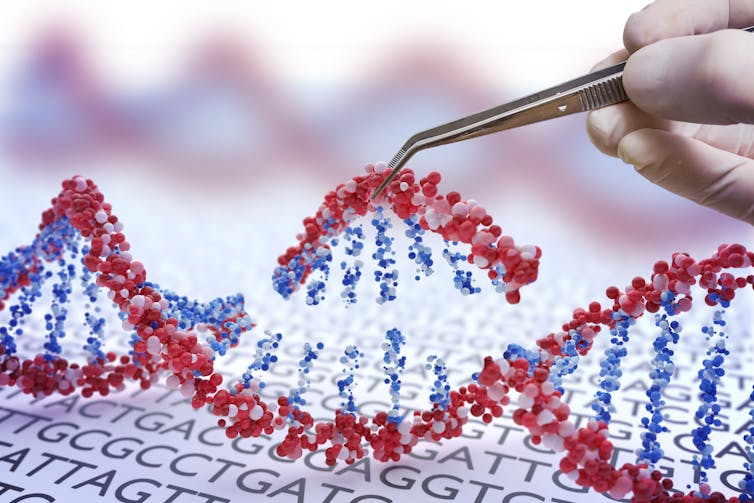Reminder: Pharmboy and Ilene are available to chat with Members, comments are found below each post.
World's first gene-edited babies? Premature, dangerous and irresponsible

By Joyce Harper, UCL
A scientist in China claims to have produced the world’s first genome-edited babies by altering their DNA to increase their resistance to HIV. Aside from the lack of verifiable evidence for this non peer-reviewed claim, this research is premature, dangerous and irresponsible.
He Jiankui from the Southern University of Science and Technology in Shenzhen (which has reportedly since suspended him) said he edited the DNA of seven embryos being used for fertility treatment, so far resulting in the birth of one set of twin girls. He says he used the tool known as CRISPR to delete the embryos’ CCR5 gene (C-C motif chemokine receptor 5), mutations in which are linked to resistance to HIV infection.
If true, this is a significant advance in genetic science, but there are some very serious problems with this news. First, the research has not yet been published in a peer-reviewed journal so we cannot be sure of the exact details of what has been done. Instead, the scientist made the claims to the Associated Press news organisation, and the journalists involved haven’t been able to independently verify them. The parents of the allegedly gene-edited babies declined to be interviewed or identified.
Second, we know there can be significant problems with using existing gene-editing technology on human embryos. The main two issues are mosaicism, where the edited DNA does not appear in every cell of the embryo, and off-target effects, where other parts of the genome may also have been edited with unknown consequences.
Before genome editing becomes a clinical treatment, it is essential that scientists resolve both of these issues and eliminate other potential adverse effects on the embryo. We need comprehensive studies to show that genome editing is not going to cause harm to the future people it helps create. Any children born as a result of genome editing will also need long-term follow up. It would be vital to see the preliminary work that he has done to confirm that his technique has eliminated mosaicism and off-target effects, and it is surprising that he has not published this.
There is also a question over why gene-editing was used to tackle the particular issue of HIV transmission in this case. The reports suggest that the couples involved in the study were made up of HIV-positive men who had the infection under control and HIV-negative women. The risk of transmission of HIV for these couples would have been negligible, and there are well-established ways to prevent HIV transmission to the offspring of HIV-positive couples.
Finally, there is the wider ethical debate, which the scientist in this case has chosen to ignore. I was a member of the Nuffield Council on Bioethics working group. We spent 20 months examining all aspects of genome editing and published our report this summer. Our conclusion was that we needed a public debate before gene editing on embryos was carried out because this procedure takes reproduction to a new level.
Do we really need gene editing?
Most reports suggest that the potential main use of genome editing would be therapeutic genome editing to prevent the transmission of genetic diseases, such as cystic fibrosis. In most cases, couples at risk of transmitting a genetic disease to their children are able to prevent transmission using established techniques of screening before birth or even before an embryo is implanted via IVF. So perhaps editing embryos for therapeutic reasons is not the way forward.
But genome editing could also more controversially used for genetic enhancements, such as ensuring children have a particular desirable characteristic such as a certain eye colour. This raises even more ethical questions.
We also need legislation. In the UK, for example, the use of genome editing would be regulated by the Human Fertilisation and Embryology Authority, and would currently be illegal. Before this technique becomes a treatment, governments need to pass laws that will control and regulate it otherwise it could easily be misused.
With all this in mind, any research in this area needs to be peer-reviewed and published in the scientific literature, with all the necessary preliminary work, so that we can make a valued analysis of the technique. In bypassing this process, He has made our job much harder.![]()
Joyce Harper, Professor of Human Genetics and Embryology, UCL
This article is republished from The Conversation under a Creative Commons license. Read the original article.



